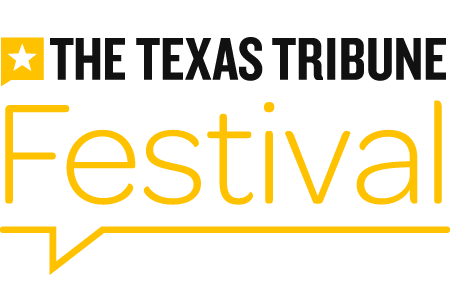Mayor Bill de Blasio says his "progressive vision" for New York City can be copied across the country
/https://static.texastribune.org/media/files/1bf4c323c583e936ef47e6d6dbcd87c8/_TTF18_de_Blasio_4_BD_TT.jpg)
The 2018 Texas Tribune Festival

More than 300 leading figures in politics, public policy and journalism are joining thousands of Texans at The 2018 Texas Tribune Festival to discuss big-picture solutions to pressing policy issues.
More in this seriesAn interview with New York City Mayor Bill de Blasio started off with “the obvious question”: What the heck is he doing in Texas?
Amid persistent rumors of his presidential aspirations, the two-term Democrat said he came to Austin to share the “progressive vision” he’s implementing in the country’s largest metropolis.
“This is what the future should look like, not only in cities around America, but in all parts across America,” de Blasio said Friday at the Texas Tribune Festival. “We need to talk about what can happen on the ground all over this country.”
In a conversation with Brian Rosenthal of The New York Times, de Blasio touted some of those efforts — such as universal pre-K, neighborhood policing and affordable housing — while defending his hesitations around some ideas like marijuana legalization.
“We’re creating a vision of a society that actually tries to include everyone,” de Blasio said. “We want people to be treated fairly, we want people to feel like the government is on their side, that their lives are being addressed.”
One of his proudest achievements as mayor has been the expansion of free, universal pre-kindergarten, he said, as he looks to extend the initiative to cover three-year olds during the rest of his second term.
He said progressive policies can start out in cities and states — both red and blue — before spreading to the national level.
“America is a progressive nation waiting to happen,” he said, noting that one of his proudest successes — a form of government ID available to undocumented immigrants —was inspired by similar initiatives first introduced in Oakland, Calif., and New Haven, Conn.
Asked about a Democratic primary season that pitted New York’s establishment incumbents against left-wing challengers up and down the ticket, de Blasio said the left is making his state even bluer.
The mayor had declined to endorse either candidate in New York’s gubernatorial primary, despite his feud with Gov. Andrew Cuomo and ties to challenger Cynthia Nixon, who he called one of the “architects” of his own campaign for mayor.
While Nixon lost by a wide margin, de Blasio said she was effective in putting issues like electoral reform and criminal justice reform on the map for the upcoming legislative session.
“I believe in my heart she ran to achieve a version of progressive change,” de Blasio said, “and she did that.”
/https://static.texastribune.org/media/files/f081d249f7e8e49140f56f89b01eeee3/NYPD_protest_de_Blasio_TTF_18.jpg)
Outside the Paramount Theater in downtown Austin, a small crowd from the New York City police union — and a few of their Austin counterparts — protested the mayor for stalling contract negotiations and accused him of delaying the process by appearing at events like this one.
“This is a pattern of an absentee mayor that’s been gone for quite a while,” said John Puglissi, vice president of the Patrolmen’s Benevolent Association, “so we have to follow him around the country.”
Puglissi said de Blasio wants to cut health care and pensions for police, without providing wage increases that keep up with inflation. (A de Blasio spokesperson later called those claims "categorically false.")
“That’s not progressive,” said flyers that Puglissi and others handed out. “That’s a problem.”
Information about the authors
Learn about The Texas Tribune’s policies, including our partnership with The Trust Project to increase transparency in news.